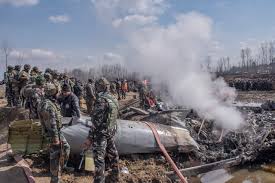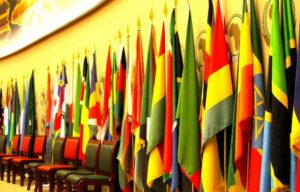
By Imam Dr. A. Rashied Omar
On the 5 August 2019, the Indian government unexpectedly revoked the 70-year old special constitutional status that granted semi-autonomy to the region known as Jammu and Kashmir. The government order executed by the Indian President, Narendra Modi, immediately abrogated the semi-autonomy previously granted to the region and put Jammu and Kashmir under the direct rule of the central Indian government in New Delhi.
Following the controversial revocation, Indian troops were almost immediately dispatched to Kashmir to assert central government control and contain any resistance to the move.
Notwithstanding global and national protests, the current situation in Kashmir remains tense and volatile, with Indian troops on the ground in every major city and village. In this khutbah I would like to provide some historical background to help us understand the current crisis and make some modest proposals on how we as conscientious Muslims and responsible global citizens should respond.
History of the Conflict
As is the case with all historical narratives, the history of Kashmir is highly contested. The dominant narrative espoused by both Indian nationalist as well as Pakistani nationalist historians is that the conflict over Kashmir is essentially a territorial dispute between India and Pakistan. These dominant narratives erase the context and perspective of indigenous Kashmiris.
According to indigenous Kashmiri people, which comprises of Muslims, Hindus and Buddhists, the root cause of the conflict is not whether Kashmir belongs to India or to Pakistan, but in denying the people of Kashmir their legitimate right to self-determination. From this standpoint the conflict did not suddenly arise in 1947 with the British partition of the subcontinent into India and Pakistan but goes back much further to 1931 with the emergence of a Kashmiri movement that struggled to liberate themselves from an oppressive princely regime known as the Doghra Maharaja. The Kashmiri struggle for freedom and democracy was escalated by the event of the 1947 Partition of the subcontinent into India and Pakistan. The struggle of the Kashmiri people was recognized by the United Nations Security Council (UNSC) in a 1948 resolution which called for a plebiscite on the future of the region to be convened “as soon as possible” i.e. a referendum to allow the Kashmiri people to determine their own future. However, such a referendum was never held and this has been the ongoing struggle of the Kashmiri people.
After attempting a number of peaceful methods to govern themselves, including the formation of the All Jammu and Kashmir Plebiscite Party, to persuade the Indian government to fulfill its commitment to conduct a referendum in Kashmir, a small group of mainly young Kashmiri’s have resorted to an armed struggle. Their armed struggle against Indian forces has flared up at various times, especially since 2016, with hundreds of Kashmiris losing their lives amidst increasing suppression from the Indian government. This has provided the Indian government with an opportunity to discredit the legitimate struggle of the Kashmiri people for self-determination by framing the conflict as a struggle against Muslim extremists who are intent on establishing a bigoted Islamic state which would eradicate indigenous Hindu and Buddhist Kashmiri’s, destabilize India and threaten world peace.
How are conscientious Muslims and responsible global citizens to respond to the current crisis in Kashmir?
First and foremost, as conscientious Muslims, we are obliged to stand for justice as is mentioned in the Glorious Qur’an in Surah al-Nisa’, chapter 4 verse 135, where Allah, the Lord of Compassionate Justice proclaims: Believers! Be upholders of justice, bearing witness for Allah alone, even if it means testifying against your own selves, or your parents and relatives. Whether it is against the rich or the poor, Allah is nearer to all of them in compassion. Do not follow your own desires lest you distort or decline to do justice. If you twist or turn away, Allah is all-aware of what you do. (Q4:135)
Furthermore, Prophet Muhammad (may Allah’s everlasting peace and blessings be upon him) has advised that: The parable of the believers in their affection, mercy, and compassion for each other is that of a body. When any limb aches, the whole body reacts with sleeplessness and fever. (Sahih al-Bukhārī and Sahih Muslim)
From the guidance of the Qur’an on witnessing for justice and the parable in the above hadith we understand that if any part of humanity is suffering injustice we should all be feeling their pain. As conscientious Muslims, therefore, it is our duty to stand up for justice in the face of human suffering, no matter who the victims are or who the perpetrators are, and call for solidarity with all people of the world whose human rights and dignity are violated by oppressive regimes.
Second, we should inform ourselves about the history of Kashmir and the social and political context regarding the current crisis faced by the people of Kashmir. In this regard it is critical not to be misled by the propaganda campaigns from Indian and Pakistani Nationalists nor that of Muslim or Hindu extremists.
Third, we need to speak out about the crisis in Kashmir. We should also publish articles and write letters to newspapers informing the public about the crisis in Kashmir and amplify our call for a peaceful resolution to the conflict.
Fourth, we should call on our South African government to pressurize the Indian government to defuse the current situation in Kashmir and to work with the United Nations to resolve the Kashmiri conflict peacefully.
Last but not least, we should remember the dire plight of the Kashmiri people in our du`as.


